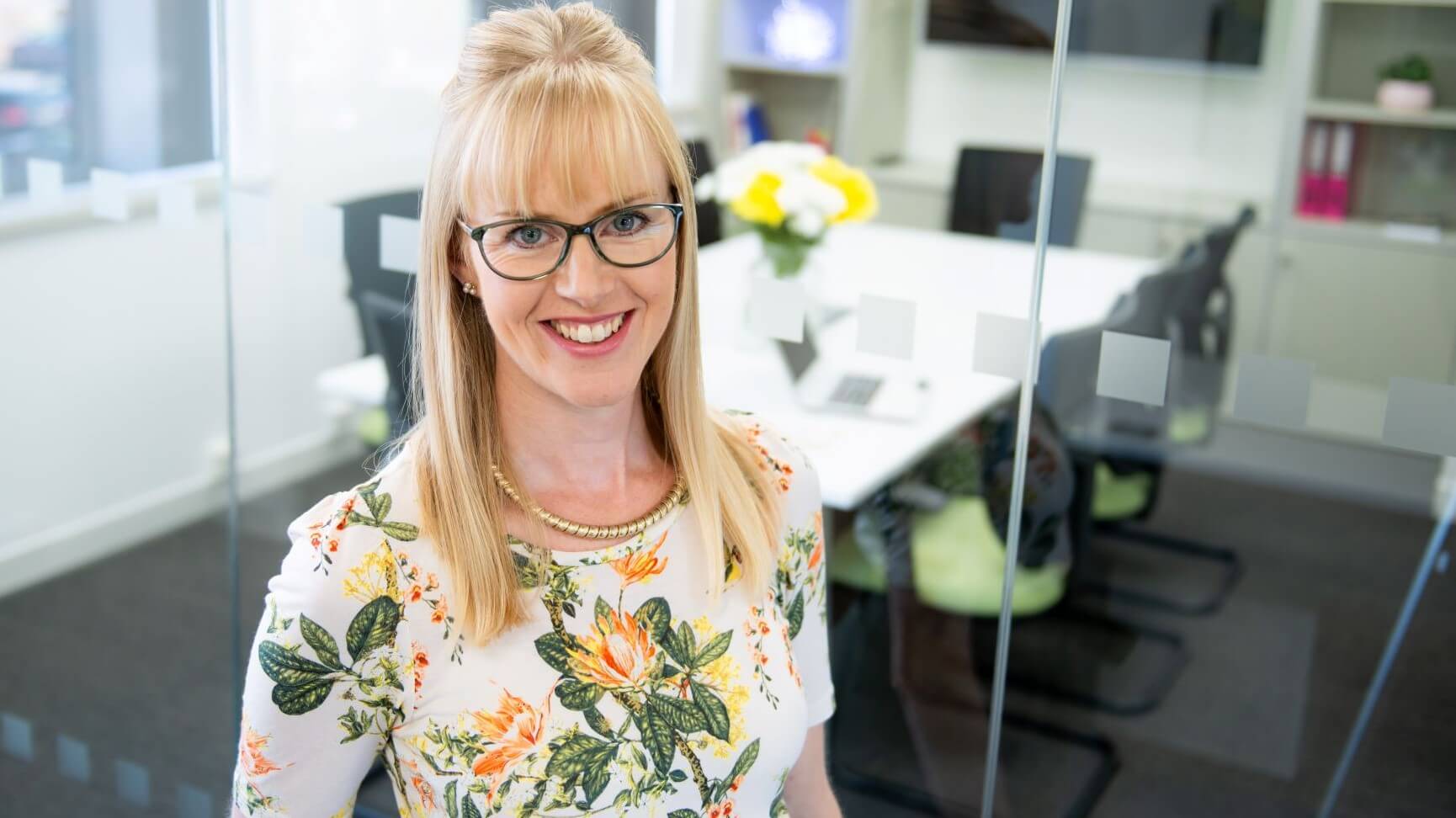"Hitting rock bottom in the pandemic was the wake-up call we needed". Helen Brown, co-founder of Seeblue Marketing explains how they achieved growth against the odds.
My Journey Of Growth In The Pandemic
"Hitting rock bottom in the pandemic was the wake-up call we needed". Helen Brown, co-founder of Seeblue Marketing explains how they achieved growth against the odds.

After a 15 year career working in the telco sector and a period of freelancing, I took the brave decision in 2019 to strike out, leave corporate life and set up a marketing agency with my friend and now business partner Orla Murphy.
It came about after a long walk on a very blustery January day. We’d found ourselves re-evaluating what was important in work and life and thinking there had to be another way. By the end of the walk, we had a full business plan and a brand.
Lots of people have an epiphany like ours in January. Taking time out over Christmas often creates the motivation to find a new job, but it’s rare in our field for two women to set up an agency having never worked in one.
Our idea was Seeblue Marketing, a strategic agency that works with business-to-business digital tech companies. With no experience of running a company, let alone an agency before, it was a massive risk.
As with many businesses, early customers came from our existing network. We wouldn’t have had the confidence to give it a go had it not been for this. Knowing there were people who knew us and our capabilities gave us the fast start we needed.
Even so, it wasn’t enough to sustain us so we kept an insurance policy in place by doing paid freelance contracts alongside setting up the business. It provided the cash we needed and some financial stability for our young families.
However, as Brexit paralysis hit, prospects and customers stopped signing on the dotted line.
To make things worse, the part-time contracts that were propping the business up came to an abrupt end when companies decided to ban contractors from the labour supply chain in readiness for IR35 reforms. And then the pandemic hit.
Last March I genuinely thought it was game over. The business almost ran out of cash and despite working all hours, the cogs just weren’t turning as fast as we needed.
But in a funny way, we needed to hit rock bottom to realise we wouldn’t survive if we didn’t make a radical change.
Mindset shift. I realised that to continue we had to stop thinking like contractors and employees and really start operating like business owners. I’m not sure why it hadn’t occurred to us before, but I wished I’d known it 12 months earlier.
The answer was to put in place a plan that followed the advice we give our customers. We had to delve into what our customers really needed, understand how the market was hurting and re-visit our market positioning.
As such, we ‘pivoted’ away from larger pieces of consultancy work and looked at ways to deliver short-term value to clients quickly, and in a way that would develop trust. It felt like a gamble but we lowered the entry barrier to launch a ‘Rapid Review Service’ and have not looked back.
Once trust is established, you can take the next step and explore additional ways you can help your customer, including through retained services. As a new brand, trust has to be earnt, especially when budgets are restricted as they have been during the pandemic – it’s so important to recognise this and ensure your commercial structure reflects it.
Business coaching. We knew that trading on connections was a risk. Sooner or later your run out of viable business leads. Our pipeline would therefore rely on marketing to new prospects. But it’s quite a dilemma when there are only two of you.
You are constantly choosing between delivering the service the clients expect and prospecting. And while doing both works, business growth comes at a cost: your wellbeing. You simply can’t sustain running a business, growing a business, and home school 5 year olds forever.
That’s when we made the decision to invest in a coach. He acts like a mirror and a compass, helping us shape the internal workings of the business and form new habits so we turn the situations we face into opportunities.
Without doubt, having someone on hand to give us new perspective and help us see the best course of action more clearly has propelled us in a way we couldn’t conceive.
A coach also has the experience to anticipate the problems you’ll encounter before you do. Ours has been instrumental in giving us tools like McKinsey’s 7 S Framework that puts structure into our thinking and prevents problems before they arise.
Get mentally fit. I think one of the biggest things I have learnt is that no matter how great you are at what you do, you have to accept that when you start a new business you are taking on the roles of about 20 people too.
You will become the people you turned to in corporate life – the HR expert, the accountant, the administrator. And that is a journey you need to be mentally prepared for. You have to start the day with an ‘I will succeed attitude’, scrutinise how you spend your time and be prepared to learn fast.
In fact, if you don’t have a love of learning and being pushed out of your comfort zone then I’d say running a business is definitely not for you.
Put a price on time. That’s helped us appreciate that you must value your own time as the Founder/CEO. You need to identify the things that make sense for you to do yourself and what should never be on the list.
Your to do list is ultimately the work that will enable the business to grow, such as strategic planning, developing partnerships and winning business, and delegate the work that can be done by specialists.
We now use a combination of employees and freelancers to help us serve clients, and run the business, and I am certain we would not be growing at the rate we are without this flexible skill.
Build an operational model that doesn’t need you. This is a really hard one to get your head around but in order to build an asset (one you might even sell), you need to build a business that can operate without you. To do that, even in the very early days, you need to put in place the systems, processes and resource that are repeatable and scalable.
When you get it right, you cut out so much time wasting and can turn things on, off, up and down as needed without thinking about it.
I will admit there have been moments when I have wondered whether we would make it. But you pick yourself up, get in a positive mindset and take one day at a time - and you have to remind yourself that living through Orwellian times won’t be forever.
We have worked our socks off to make it work, achieving 270% growth this year. We’ve made tough decisions, but we’ve also learnt the lesson to use the experience and expertise of others.
I didn’t expect to be writing a plan to employ 15 people in the next three years but thanks to them we have managed to get to a point where we can be that ambitious.
There is nothing like running your own business. The feeling of success is sweet. But it’s even sweeter when you can share it with others, overcome ‘unprecedented times’, and hopefully inspire the kids too.
Helen Brown is co-founder of Seeblue Marketing.
Thanks for signing up to Minutehack alerts.
Brilliant editorials heading your way soon.
Okay, Thanks!

